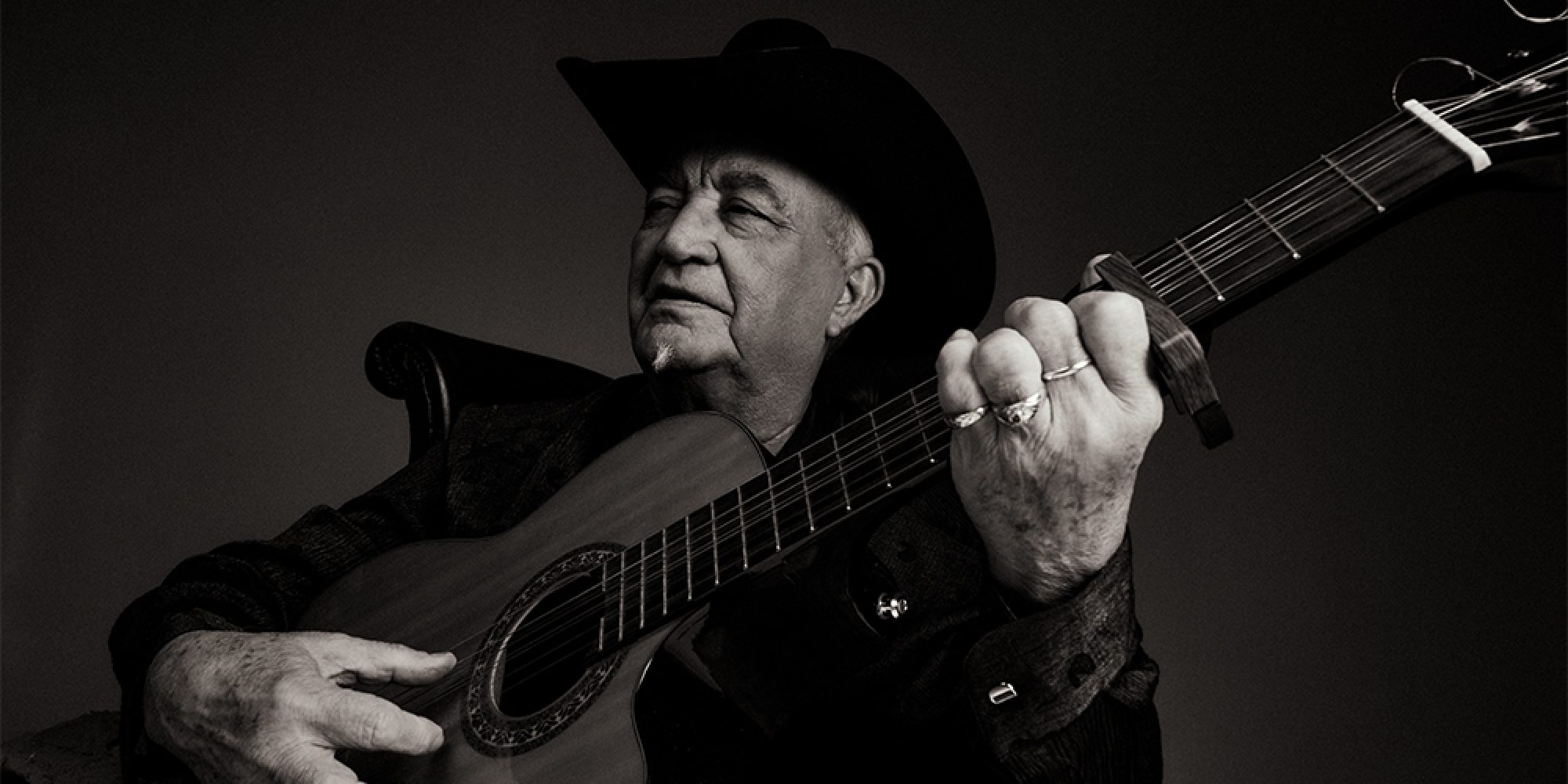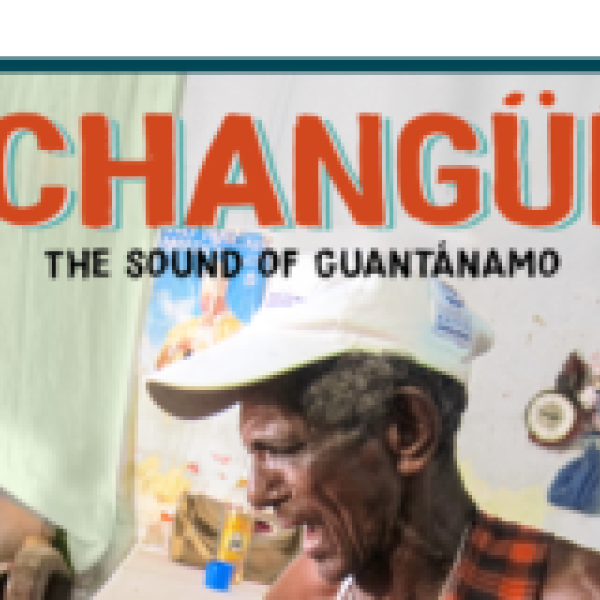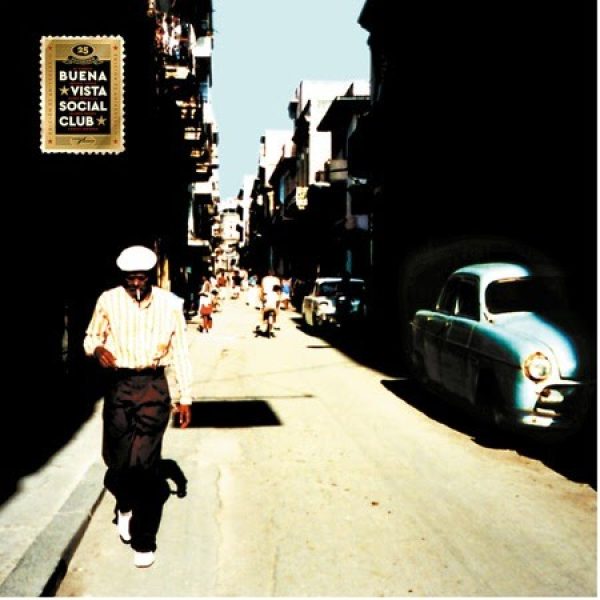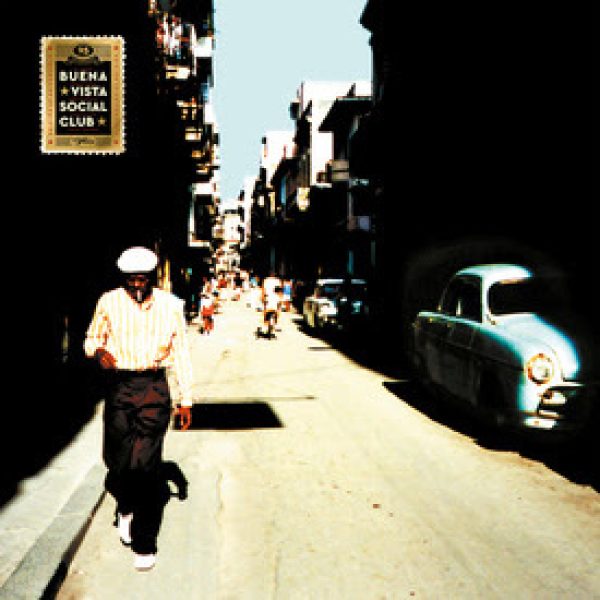Eliades Ochoa came to global attention with the Buena Vista Social Club back in 1996. But by then, he was already a well-established bandleader in Cuba. He had led Cuarteta Patria for 18 years already. Today, at 76, he’s still in fine form, recording and touring with the same energy and charm that brought him to the world stage. Ochoa’s deft picking on the Cuban tres, and gruffly melodious baritone vocal are his signatures, and he writes many of his own songs. In the Buena Vista lineup, Ochoa represented the more rural side of Cuban music, a kind of Cuban country from the eastern tip of the island around the city of Santiago de Cuba. His 2023 album is named for that style of music, Guajiro. But as he told Afropop’s Banning Eyre in a recent Zoom interview, on this album he’s looking to the future, not the past. He spoke through his daughter Evora Vicents translating from Spanish to English.
Banner image by Massi Giorgeschi.
Banning Eyre: Eliades, very nice to meet you.
Eliades Ochoa: Thank you. Thank you so much.
Hablo un poco de español, pero… not enough for an interview.
No worries.
I've been following your music for a long time. I was actually at the famous Carnegie Hall Buena Vista Social Club show that was in the film. I think that was 1996, and I have followed your music ever since. It's really a pleasure to meet you, because I love what you do.
Thank you. I appreciate it. I hope every day I can make the music better.
Good for you.
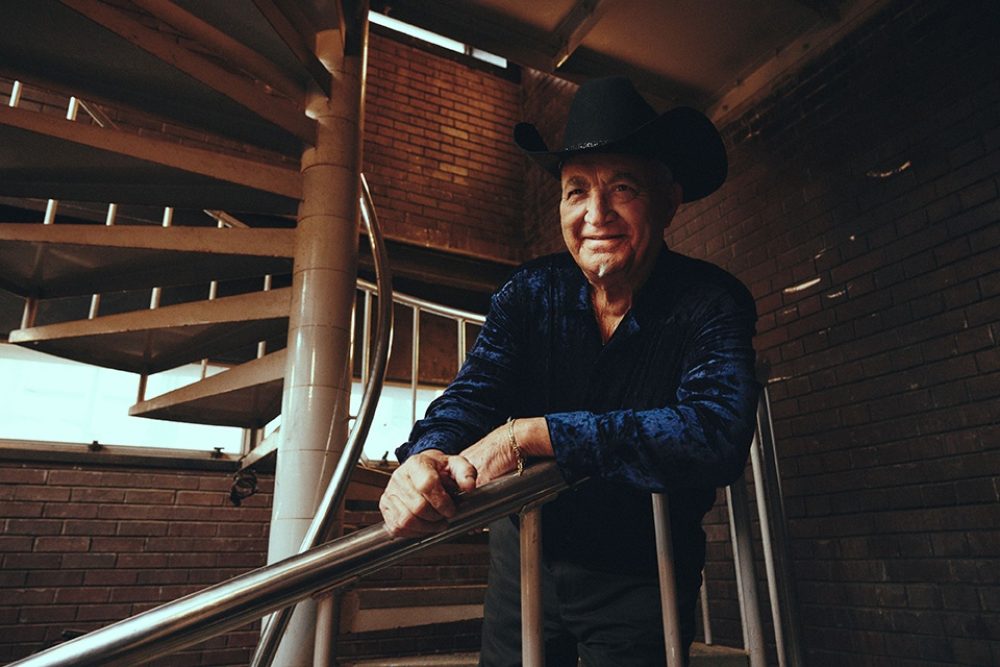
Since this is the first time we've spoken, I'd love to hear a little bit about your early life when you were young, how you became a musician, how you started playing the tres, what your family was like and your beginnings in music.
I started when I lived in the mountains of Santiago de Cuba listening to my mother and my father play and sing. And then I started getting better with my music, and at some point I started playing on the street and getting tips every time I played. Then I started playing for the radio station in Santiago de Cuba. That was in 1963. So I started playing professionally at that radio station and that’s when I start getting more experienced.
I played there in that radio station for around 10 years, and then after that I started playing at La Casa de la Trova in Santiago de Cuba. At La Casa de la Trova, I played with different bands, and in 1978, I became part of Cuarteto Patria. Later, I became the leader of that band, so there was a moment when I had two bands at the same time. I was playing for Buena Vista and I was playing for Cuarteto. I'm still the leader of Cuarteto Patria.
On our radio program, we recently did a program about changui music, which I know that also comes from Orienté, near where you grew up. But I want to hear about the genre you are most identified with about, guajiro. If you were describing the style to someone who knew nothing about it, what would you say?
A guajiro is a person who works on the land. He's a farmer. So that's the name that they call people who live in the mountains, and they also call their music montuno guajiro. This album has some montuno, which is like the type of music that these people these people play. It’s the traditional music that they use to dance at the traditional events they have.
Thank you. Before we come to the album, I have to tell you that you and I have a very good friend in common, which is Djelimady Tounkara, the guitar player who you performed and recorded with on the AfroCubism project. As it happens, I was living in Mali and studying guitar with Djelimady when the Buena Vista Social Club recording sessions happened. He was supposed to travel to Cuba, but as you know, he didn't make it. That’s a long story, but I was so pleased that the idea was later realized as Afro Cubism. I know that he was particularly fond of you. I saw you two perform with that group a couple of times and really loved it. Tell me about your impression of Djelimady.
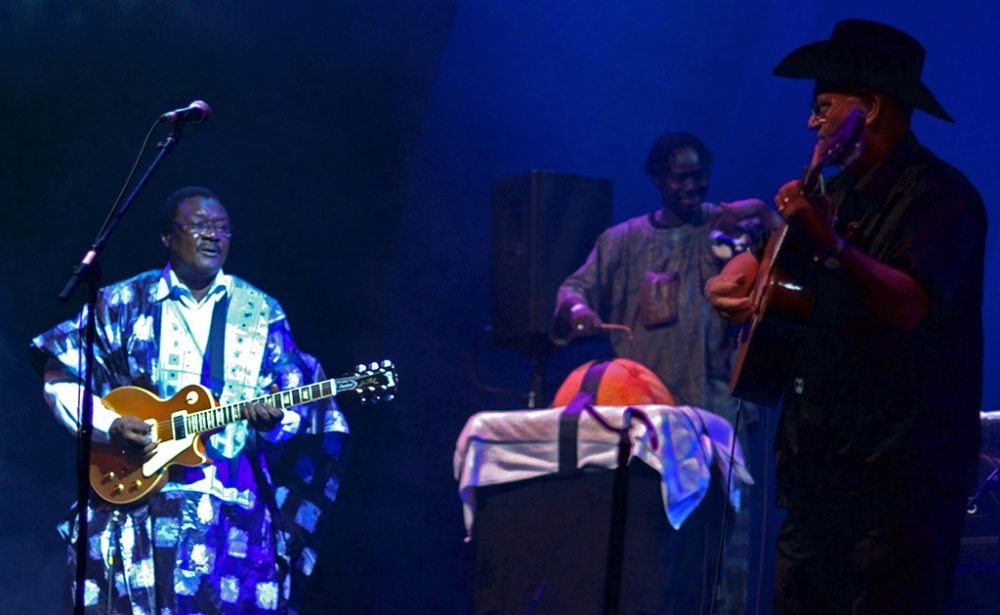
I have a very good relationship with Djelimady and with the rest of the musicians that were part of the band of AfroCubism, especially with Toumani Diabaté. It was really a nice and interesting experience. I feel like AfroCubism was a school for the musicians from Mali and for the musicians from Cuba. We all learned because we had different ways of making music. We both use syncopation in different ways, very specific ways. African music has its own way of syncopation, and also Cuban music has its own way. So at the end of the day we found a way to communicate through the music, because we didn’t share a language. It was amazing for us to know how to play the music from Mali and for them to learn how to play the music from Cuba. So it was a school for all of us.
Kasse Mady [Diabaté], who recently died, was one of the singers of AfroCubism, and he saw how we used to do some improvisations when we sing. We normally do that when we perform the songs. Then he picked that up and started doing that as well. He used to start adding things to the song while he was singing. So it was a great experience for all of us.
That's wonderful. I've spent a lot of time in Mali and I know the musicians you worked with, Bassekou Kouyaté, Toumani, Kasse Mady… These are wonderful musicians and people, and it was really a treat to see you playing with them. I love the way your tres and Djelimady’s guitar were connecting. It was a beautiful thing. It reminded me that Djelimady first learned guitar by sitting with the radio and playing along with Cuban songs. This collaboration was a long time coming for him.
In the shows, we used to have duets. So me, I used to play with Kasse Mady or Toumani or Bassekou. We had specific duets where we were trying to connect. It was very nice, because the music was not fighting. It was really cohesive. So it was great.
Magnificent. So let's come to your new album, Guajiro, which I've been listening to and enjoying very much. What was your idea on this album? Did you have a concept or a plan going in for how you were going to make this album special?
This album was created to target a young audience, because we noticed that around 50 or 60 percent of our audience in the shows were very young, so we tried to do something more contemporary, something that will be more attractive to a younger audience. I mean, they have the final word. So we were trying to get songs that will be more interesting for this new audience. That's why we have songs like “Se Solto Un Leon” and “Anita Tun Tun Tun” and those kinds of stories where a guy is looking for a girlfriend.
So on those songs the rhythms are still traditional, but also more contemporary. They have other rhythms, and also the names are catchy. So we're trying to create something that they will enjoy more. The audience that is going to our shows is like the daughters and the sons of people who listened to Buena Vista Social Club. They were raised listening to Buena Vista Social Club so this is an album for them to enjoy.
Evora Vicents: You know, they are in their 20s and 30s. It’s the same in my case. I was raised listening Buena Vista Social Club. So I'm sure it was the same with others in my generation. So that's why we want to continue keeping them in the family and having an album that they will engage with.
Beautiful. Eliades, let me ask you about the song you did with Ruben Blades, “Pajarito Volo.” I read that you and he share a rural background and that you relate to each other on that basis. But tell me about the song you guys made together.
Ruben liked the message of the song. So he didn't doubt it for a second when he listened. Because this song has a powerful message, especially for the times that we're living in right now. I's about a girl that doesn't want to follow the rules of the man. He wants to keep her in a cage, but she wants to be free. She wants to go out with friends. She wants to feel the freedom and have a different life. So that's why one day he comes to the house and finds it empty. She has left. I wrote that song with this message, and he was inspired. In this situation I wanted to write a song with this important message.
Nice. And speaking of women and youth, you did this very interesting song with Joan Wasser, better known as Joan As Police Woman. The song is “Creo En La Naturaleza.” “I believe in nature.” Tell me about that one.
The style of the song is like a habanera. It has that vibe. The root of the song is habanera, a style of music from the previous century. When I wrote this song, I wrote it from the window in my house. I was inspired. I like to wake up early and I was watching the sunrise and I was inspired because this song is telling a story. I was inspired and motivated by the sunrise and also the sunset. After the sunset, you start seeing all these stars. So I was in love with this idea. I want to live longer. This is something that I know. I want to have more years to enjoy what I do because I love my music, and my career is what keeps him going. So I was inspired by that from the window in my house. That's how I wrote this bolero.
When Joan saw the lyric and heard the music, she got inspired too. She also added the violin, which is a special touch on this song.
It's beautiful. I was not familiar with Joan. I guess I'm too old. But that's wonderful. I hope her audience gets to hear it and appreciates it. Let me ask you about a song you mentioned earlier, “Anita Tun Tun Tun.” Such a great hook on that one.
So this song, “Anita Tun Tun Tun,” is about giving an opportunity. It says Anita should give the guy an opportunity. So it's like, “Open the door. Give me an opportunity. Let's come and dance this rhythm.” That's what this song is about. It's very joyful. That's why we added it to the album. We added it for this new audience that is now coming to our shows. We had a younger audience with Buena Vista when we first started, which is older now. They still come to our shows, so they also will enjoy it as well.
You have a great blues with Charlie Musselwhite, “West.” You're really playing the blues there, man. That is very cool.
So Charlie is a very old friend. We have worked together previously. We met at Virgin Records and I participated on one of his albums, Continental Drifter (1999). We played several songs together on that album, and their relationship comes from there. It's very long time ago.
Evora Vicents: And there’s something he didn't mention that was funny. We were in a restaurant in Miami and we saw Charlie after a long time. It was really nice. And then he started playing a little bit of this song to Charlie. And Charlie was like, “I like this.” Actually, it was during the pandemic. So we're having dinner with Charlie and his wife and in the middle of that, he was singing this song to Charlie, and that's where the idea started. I didn't even know that my dad had written this song. So that's how we found out about “West.” And then they got interested and they wanted to collaborate together and do the song, and when this happened, Charlie was super excited, and now he's part of the album.
Eliades, I see you're doing a lot of touring this year. [See tour dates, below.] Do you enjoy being on the road?
Yes. Seeing my audience and having their support during my shows helps me. It gives me the strength to keep going. So that's why I enjoy touring so much because I have that time where I connect with them and just feeling their love and support and having them sing in my songs, you know, it gives me so much strength to keep going and making the music.
That's wonderful. Well, I hope I'll catch one of your shows. Do you tour with Cuarteto Patria?
I have some of the musicians from the Cuarteto Patria, and also musicians from Cuba and musicians from here in Spain where I live. For this tour, we're traveling with musicians that live here in Spain. But they're Cuban. They all know Cuban music.
So that's where you are now. What town in Spain?
Madrid. It’s a barrio, in a neighborhood that I like a lot. I’ve been here for a while. It's very close to the la Plaza de Toros Las Ventas. Do you know where it is? That’s where they have the bull fights? When you want to get a coffee, you have your house here.
I would love that. It’s really a pleasure to meet you and speak with you and I hope that I'll catch some of your touring when you come over to our side.
Let us know and we'll arrange everything to have you there.
And Evora, thank you very much and thank you for your wonderful translation. Have a lovely evening and we will meet again.
Thank you so much.
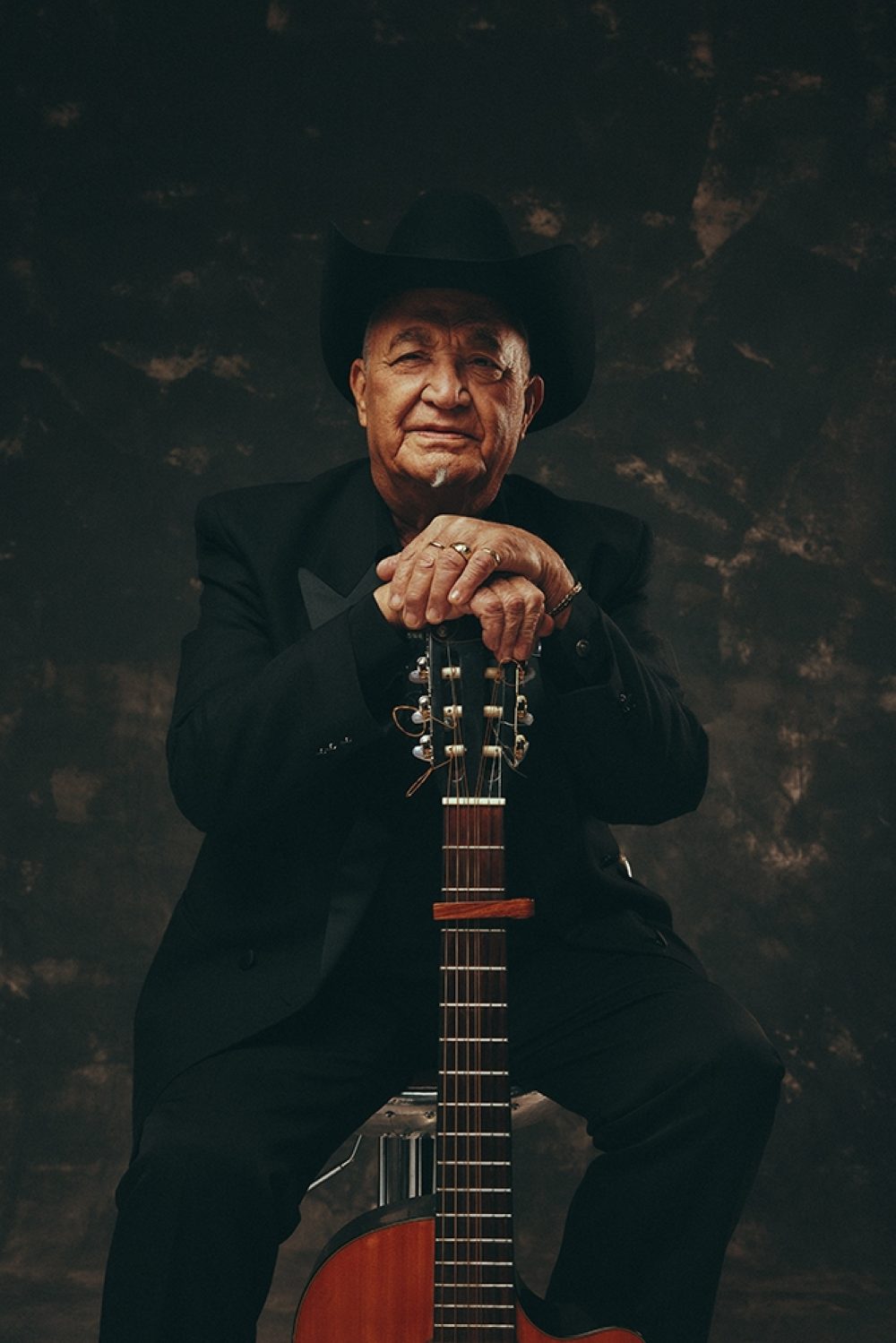
TOUR DATES
June 20—Bloemendaal, NL—Caprera
June 23—Essaouria, MA—Essaouira Festival
July 2—Malaga, ES—Teatro Cervantes
July 6—Rudolstadt, DE—Rudolstadt Festival
July 13—Pisa, IT—MusicaStrada Festival
July 15—Pesaro, IT—Lonely Planet UlisseFest
July 22—Chanac, FR—Festival Détours du Monde
July 25—Riga, LV—Green Theatre Mezaparks
July 29—Sète, FR—Fiest’A Sète
August 10—Segovia, ES—Noches Magicas de La Granja
August 16—Santa Cruz, CA—Kuumbwa Jazz
August 17—Berkeley, CA—Freight & Salvage
August 18—San Diego, CA—Epstein Family Amphitheater
August 19—Los Angeles, CA—Music Center
October 29—London, UK—Koko








